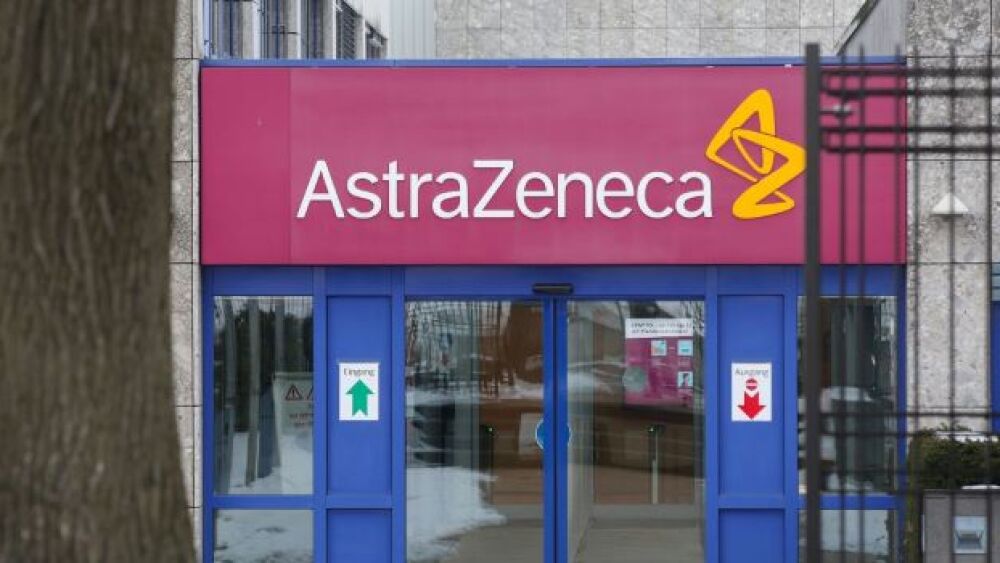AstraZeneca’s COVID-19 vaccine road to approval has been anything but smooth.
AstraZeneca’s COVID-19 vaccine road to approval has been anything but smooth. Announcing in March a mid-April submission for U.S. approval, that timeline has been pushed back to mid-May, with the company citing the massive dataset as the cause.
“There’s a lot more data than just a Phase III study and so we’re working as fast as we can to pull it all together and submit,” said Mene Pangalos, executive vice president of BioPharmaceuticals R&D at AstraZeneca.
CEO Pascal Soriot reassured in a first-quarter results briefing there is no issue with the data, its merely the size causing this speedbump.
From the beginning, AstraZeneca promised to sell its COVID-19 vaccine without profit. But sales haven’t kept up with the costs, resulting in a hit to earnings. Earnings from vaccine sales have been nowhere near the company’s best-seller Tagrisso, a cancer drug, reported over $1.1 billion in sales for the same quarter. Vaccine sales for the first quarter came in at $275 million, a paltry amount when compared to the multibillion-dollar sales anticipated for Pfizer and Moderna.
Johnson & Johnson reported $100 million in sales for its vaccine this quarter, having also pledged to sell its vaccine “at cost.” Pfizer and Moderna made no such forbearance of profit, expecting $15 billion and $18.4 billion in revenue, respectively, from sales of COVID-19 vaccines.
Developing a safe and effective vaccine at breakneck speed to stop a global pandemic is no small task. When the pandemic first began, over 100 vaccine candidates began the race to development. That list has been whittled down over the year as efforts have been abandoned.
Currently, just three COVID-19 vaccines are approved for use in the U.S., with AstraZeneca hoping to be the fourth. The vaccine is already approved for use in at least 78 countries.
With close to 240 million doses of either the Pfizer-BioNTech, Moderna and J&J vaccines already administered in the U.S., it’s becoming likely the AstraZeneca shots originally intended to be supplied to the country under government contract are not needed. However, an approval by the FDA would provide a much-needed boost to confidence in the vaccine, as its faced multiple question-raising setbacks through the past months.
The Biden administration has promised to make the 60 million doses earmarked for the U.S. available to the rest of the world, pending a quality review.
Former Biden-team advisor Ezekiel Emanuel, oncologist and professor at the University of Pennsylvania, explained the importance of FDA approval for AstraZeneca’s vaccine, even if it’s not used in the U.S.
“We need this vaccine out there helping the world,” Emanuel said. “If it were not authorized, that would be a blow to the whole world, not just the U.S.”
The AstraZeneca shot is much cheaper than rival vaccines, as well as easier to transport and store. The company’s initial pledge for three billion doses this year were primarily being supplied for poorer countries that can’t transport or afford the pricier, cold storage vaccines.
The AstraZeneca shot reputation has taken a few hits with reports that information provided by the company on its clinical trials was outdated and provided an incomplete view of efficacy data.
The biggest hit to confidence has been the suggested link between the AstraZeneca vaccine and blood clots. Quebec just reported Canada’s first blood clot death in a woman who had received the vaccine.
“We just had our first patient who has died of a thrombosis, cerebral thrombosis, following vaccination from AstraZeneca,” Dr. Horacio Arruda told a news conference Tuesday. “This is an event that is rare. We knew that it might happen.”
Although the AstraZeneca vaccine has been linked to blood clot cases in the Europe and UK, the cases are still rare. Health authorities still believe the benefits of the vaccine far outweigh the low risk of blood clot.






